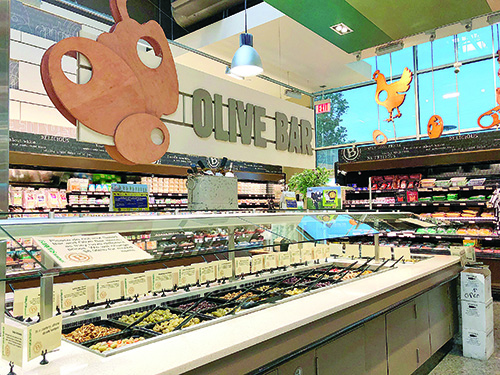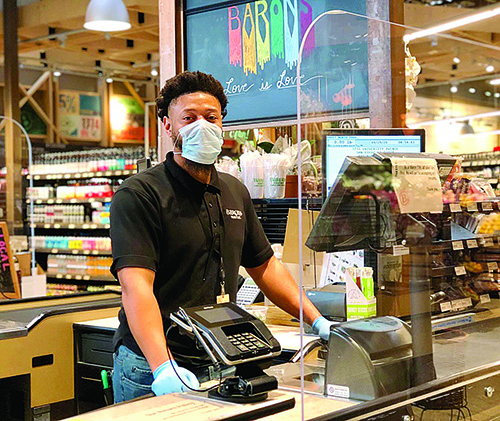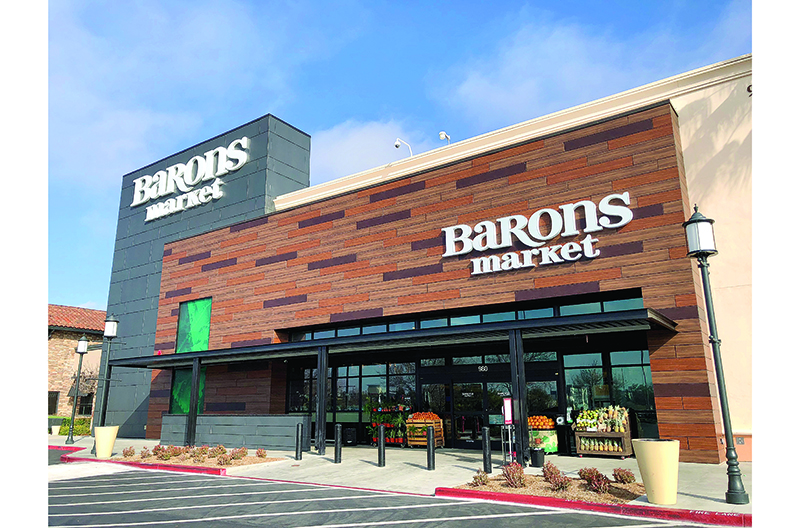Southern California-based Barons Market has grown a community online through social media by showcasing employees, sharing news and drawing customers into its stores. Another one of those opportunities is working with micro-influencers in the same area.
“Unlike typical celebrities, experts or public figures, they’re individuals who work or specialize in a particular vertical and frequently share social media content about their interests,” according to HubSpot’s definition of the term.
Barons SVP Rachel Shemirani mentioned the micro-influencers they have worked with have fewer than 10,000 followers but have an engaged community. Most importantly for Barons, the influencers are local.

“How can we engage them to engage their followers? So we will typically give them a $100 gift card and a mission, ‘Can you put together the best charcuterie board for this amount of money?’ And then again, give them a gift card for their own personal use.”
The micro-influencers then provide the appropriate content and run a contest on their own pages.
Barons is a family-owned grocery store with nine locations in the region, focusing on organic, natural and specialty foods with a neighborhood store atmosphere. The company was founded by Joe Shemirani, Rachel’s father. Along with her sister, Dana, VP of purchasing, other family members are working within the company.
Rachel Shemirani noted that while Barons Market has some international followers, it doesn’t provide much value in regard to getting customers in stores.
“By using these micro-influencers where we know that their followers are typically local, that’s been a great way to introduce more people to our brand,” she said.
According to her, the company likes to do two to three kinds of contests a year with micro-influencers.
“When we do that, we see those people coming into our store…that’s the whole point of this. We want people to come and check us out. Because we really believe when coming to our store, you’re going love it. You’re going to shop with us. And this has been just a great way to do that,” she said.
Prepared items
Another area where Barons continues to focus on is prepared foods. The stores currently have bars for hot food, salad, olives and rotisserie chicken.

“We also do prepared sandwiches, we have breakfast burritos and then entrees that we make fresh every single morning to sell through the day,” Shemirani said.
Prior to the COVID-19 pandemic, grab-and-go and prepared foods were experiencing the most growth at Barons Market stores. “Now during the pandemic, it’s really exploded,” she added.
Shemirani also pointed out the company had to shut down the self-serve bars for some time due to COVID concerns. However, customers were thrilled once they reopened.
She also recalled how Barons’ stores used to carry self-serve bulk items such as nuts and candy. Since the pandemic began, the company has pre-packaged everything and sales “shot through the roof.” It’s a method likely to last.
Taste test meetings
Barons Market offers fewer SKUs but has an added emphasis on quality, which is achieved with its taste team.
The team is much smaller these days, with about 13 members tasting anywhere from 80 to 130 products. Sherimani said they choose about five to 10 products.
“It’s a limited amount of food at this point,” she said. “But we think as soon as we start getting back out there to look at new products, getting back out to trade shows, we can see what’s new and what’s out there. We hope to start our kind of larger food panels in the next month or so.”
The value of these taste meetings are twofold. “Finding new products to add to our shelves and really keep that cultivated food selection and keep our product selection limited. When your product selection is limited, the customers have an easier time shopping your shelves,” she said.
The second benefit is communication with all nine store operators. “It’s so great to sit down with all the stores and go, ‘Hey, what’s going on in your store?’” she said. “And just sharing those ideas is just one of, I think, the keys to our success…I’ll be really happy when we get the stores back involved again, hopefully in the next couple of months.”
Pre-pandemic, new products that met the team’s approval reached store shelves in about two to three weeks.
Supply chain

Although facing some of the same supply challenges as other retailers, Barons’ has a 50,000-square-foot warehouse below its office headquarters in San Diego.
“We quadrupled our orders on things that are kind of staple items,” Shemirani said. “And we also have big freezers. Soup, frozen soup, just in case…I think we sold four months’ worth of product in about two weeks. Having that warehouse is definitely helpful so that we can bulk up on orders.”
Right now, Barons Market is seeing manufacturers limit their products. “We really have to pivot. So instead of having 10 different options, we have four,” Shemirani said.
The company plans to expand the warehouse, adding more freezer space to help with buying power and the supply chain.
“We know that it’s not reasonable for everyone to have their own warehouse…but it’s definitely helped us. It’s been more beneficial to us than not,” she said.
In regard to inflation, she does not recall seeing a similar increase. For staple items like eggs, bread and milk, Barons does it best to avoid price increases.
“Oftentimes, we’ll be selling items at cost just because we feel for the customer. We hate raising these prices…on staple items. We really try and hold back those price changes, which has been helpful.”
For more information, visit baronsmarket.com.
For more news from The Shelby Report, click here.

